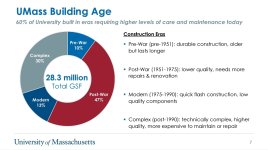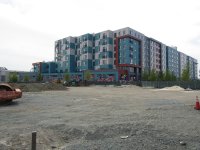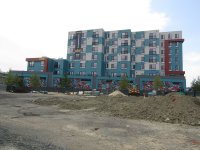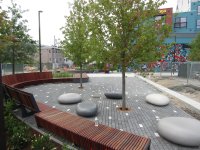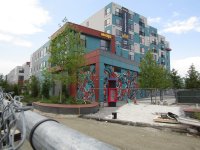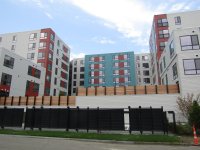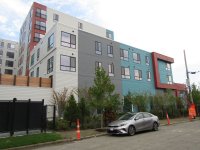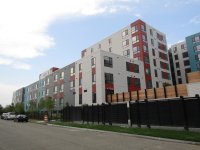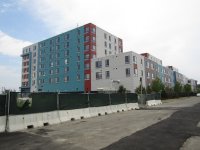millerm277
Active Member
- Joined
- Jun 25, 2013
- Messages
- 520
- Reaction score
- 607
I dont understand how everett can build a million 5 over 1’s but they cant do it here? Theres a massive shortage of housing and ppl are paying to get in something, I dont see how they cant make the numbers work here.
- Suffolk Downs needs a lot of infrastructure work. The "Beachmont Square" promo for the first part of the project PDF here claims "$337m in on + offsite infrastructure investment" in building out Suffolk Downs. Presumably, a good portion of that is going to be front-loaded costs that are going to make the immediate economics/returns worse - that $20m you need to put in the utilities/roads for the next building might be later utilized by a bunch of subsequent buildings, but in terms of near-term return, it's an additional drag.
- Suffolk Downs was proposed pre-pandemic. As permitted, it is supposed to be 1/3rd office/lab space - over 5 million square feet of it. It's obviously very questionable as to what the market for any of that is, especially since it seems like we're firmly past the "build lab space everywhere" boom. The project may require a pretty substantial reworking to fully build out.
-----
In contrast....Everett's putting up apartment buildings on sites that were already basically built out in an infrastructure sense from my impression. I'm sure there's upgrades and such to a degree with the heavier utilization, but there's already streets, drainage/sewers, water/electric service, etc.
A dollar put into those projects is a dollar that probably goes more immediately to producing a rental unit that will start producing revenue in the near future.
-----
My suspicion is that if the first building puts out good rental $/occupancy once it opens they'll probably have an easier time getting financing for the other 2 that are supposed to neighbor it in "Beachmont Square", especially if interest rates also start easing a little (as appears likely).

